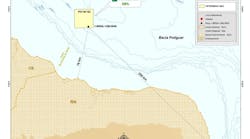Watching oil prices deflate in middle of October might lend credence to the view that a war premium is still the primary driver of oil prices these days.
After all, by the week of Oct. 21, crude oil futures prices on the New York Mercantile Exchange had slipped about $2/bbl off their early October peak of more than $30/bbl. Some traders sold long positions in this span, citing the apparent softening of the US position toward Iraq. Comments by Bush administration officials seemed to indicate a subtle shift in policy that Iraqi disarmament, not Saddam Hussein's ouster, is the US's primary goal. Coupled with continuing reluctance by the United Nations Security Council (namely France and Russia) to give the US carte blanche for a strong resolution greenlighting a military strike against Iraq, the certainty has faded of a US-led attack on Iraq anytime soon.
Physical fundamentals
Or are the underlying physical fundamentals still being overlooked? While US crude stocks rose this week, they nevertheless remain close to historically low levels.
Oil exports have been rising for some weeks now, as quotabreaking continues from the 10 members of the Organization of Petroleum Exporting Countries bound by quotas. In addition, Iraqi export levels, governed under the UN oil-for-aid sales program, have rebounded as a result of Saddam ending Iraq's illegal surcharge on the oil-for-aid exports (thus currying favor with the UN, another dimension of his endless cat-and-mouse game to keep it at odds with the US).
However, this extra OPEC oil is more than a month away from where it is needed on the US Gulf Coast, notes London think tank Centre for Global Energy Studies.
So in the interim, crude oil markets continue to tighten for fundamental reasons, with crude supplies lagging demand.
CGES points out that "US crude oil stocks have continued the fall that began in the summer, pushed even lower by tropical storms in the Gulf of Mexico that disrupted both imports and production, while distillate and gasoline stocks are also beginning to come down with the arrival of autumn and seasonally low refinery runs."
Asian crude buying is on the upswing as well.
"If there is a repeat of the intense competition between refiners in Asia and the Atlantic Basin for crude oil that drove prices above $30/bbl towards the end of 2000, prices could spike this quarter," CGES said in its Oct. 21 monthly oil report.
OPEC's role
With such uncertainty on the geopolitical front and with a question mark still hovering over the true scope of demand in a fragile global economy, OPEC is likely to continue to play it safe.
What that means now is that the group has allowed "leakage" to stand as its de facto production quota policy. Without OPEC overproduction to inhibit panic buying in such a delicately balanced market, $30/bbl oil would be a fond memory—for consumers.
As the US-UN-Iraq rondelay continues its fitful ways in the weeks to come, the slackening certainty of war will flatten the war premium even more. And that will strengthen OPEC's case for playing it safe.
Why? Because war would most likely end any uncertainty in fairly short order—as it did with Desert Storm—and thus with it the war premium. A quick, contained resolution of any Middle East conflict would muffle the market "noise" from the threat of war. Thus markets would be left with more easily discernible fundamentals, and OPEC could bolster or loosen its production discipline as needed.
So a betting man would be wise to take the odds for a rollover of current—albeit ignored—OPEC quotas at the group's ministerial meeting in December.
If the geopolitical situation gets squishier and starts to resemble the interminable process seen with UN weapons inspectors in the late 1990s, then the war premium will shrink to insignificance.
Faced with a truer picture of underlying demand and an easing of Middle East tensions, OPEC then will be challenged to again focus on production discipline if it wants to continue pursuing a $25/bbl OPEC basket. But the prospect of pursuing such a high oil price into yet another year could hold hidden dangers for OPEC. Next week's column will address the threat lurking for OPEC in 2003.
(Online Oct. 25, 2002; author's e-mail: [email protected])

